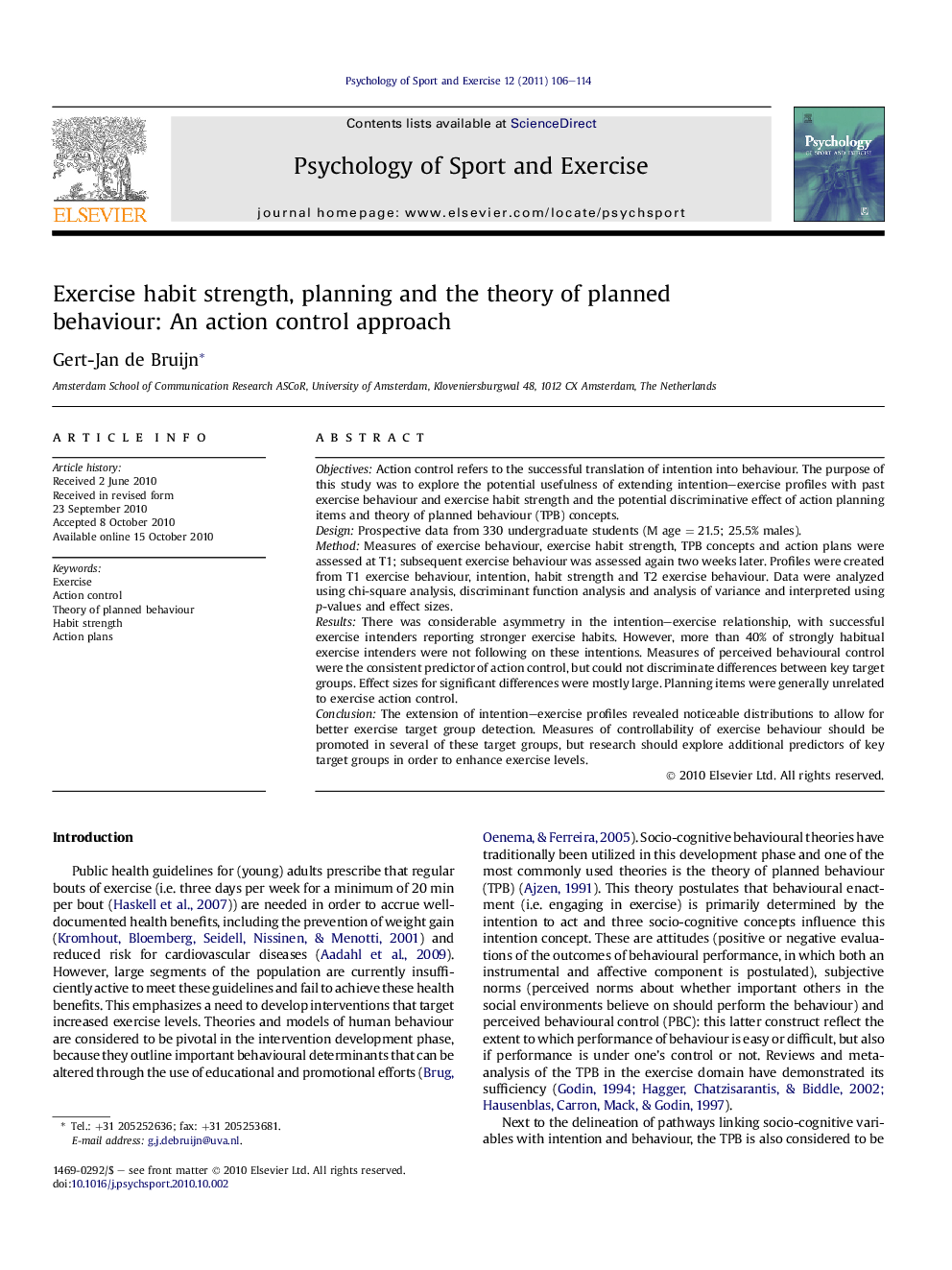| کد مقاله | کد نشریه | سال انتشار | مقاله انگلیسی | نسخه تمام متن |
|---|---|---|---|---|
| 894522 | 1472136 | 2011 | 9 صفحه PDF | دانلود رایگان |

ObjectivesAction control refers to the successful translation of intention into behaviour. The purpose of this study was to explore the potential usefulness of extending intention–exercise profiles with past exercise behaviour and exercise habit strength and the potential discriminative effect of action planning items and theory of planned behaviour (TPB) concepts.DesignProspective data from 330 undergraduate students (M age = 21.5; 25.5% males).MethodMeasures of exercise behaviour, exercise habit strength, TPB concepts and action plans were assessed at T1; subsequent exercise behaviour was assessed again two weeks later. Profiles were created from T1 exercise behaviour, intention, habit strength and T2 exercise behaviour. Data were analyzed using chi-square analysis, discriminant function analysis and analysis of variance and interpreted using p-values and effect sizes.ResultsThere was considerable asymmetry in the intention–exercise relationship, with successful exercise intenders reporting stronger exercise habits. However, more than 40% of strongly habitual exercise intenders were not following on these intentions. Measures of perceived behavioural control were the consistent predictor of action control, but could not discriminate differences between key target groups. Effect sizes for significant differences were mostly large. Planning items were generally unrelated to exercise action control.ConclusionThe extension of intention–exercise profiles revealed noticeable distributions to allow for better exercise target group detection. Measures of controllability of exercise behaviour should be promoted in several of these target groups, but research should explore additional predictors of key target groups in order to enhance exercise levels.
Research highlights
► Intention alone is unlikely to be sufficient for exercise behaviour to occur.
► Intention–exercise gap exists in exercise adopters and exercise maintainers.
► Strongly habitual exercisers are less likely to be inclined abstainers.
► Self-regulatory planning items could not differentiate successful from unsuccessful exercise adopters.
Journal: Psychology of Sport and Exercise - Volume 12, Issue 2, March 2011, Pages 106–114